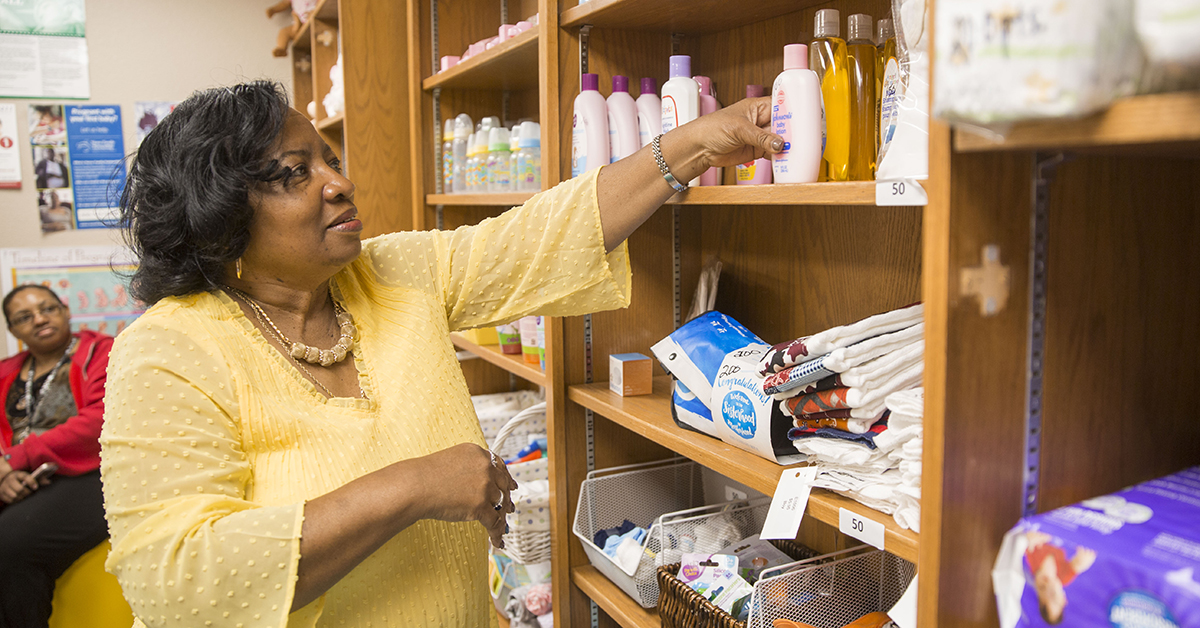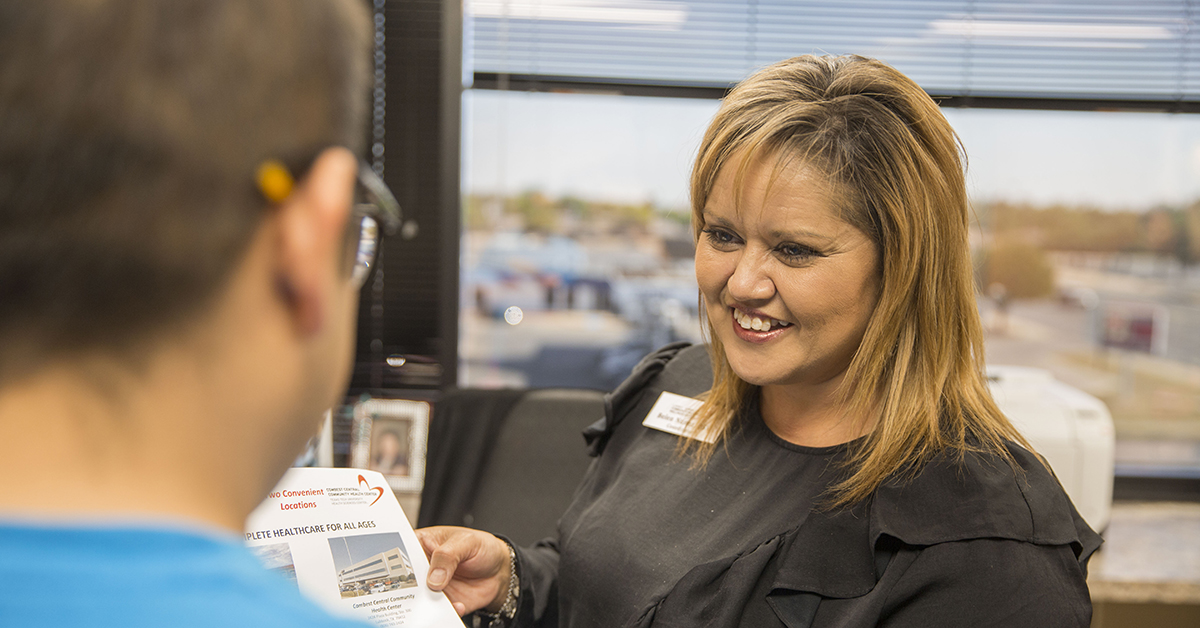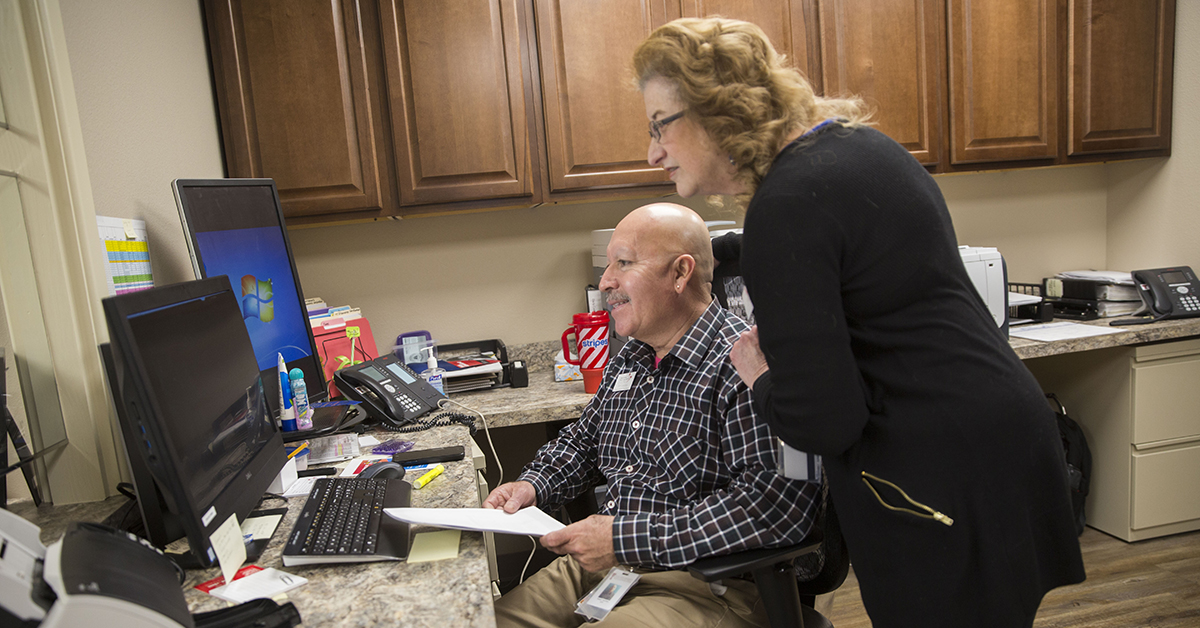Providing Health Care for Central Lubbock
Combest Central Community Health Center Hosted Open House

Community members in central Lubbock now have access to health care and prenatal programs
at one location. The Texas Tech University Health Sciences Center (TTUHSC) School
of Nursing hosted an open house for the Combest Central Community Health Center April
25.
The School of Nursing programs including the Combest Central Community Health Center,
the Nurse Family Partnership and the Stork’s Nest are now located at 2424 50th St.
Michelle Hunter, marketing and outreach director for the Combest Central Community
Health Center, said the new location will provide more services for families in central
Lubbock.
“We wanted to have all of the programs under one umbrella to better serve those who
need comprehensive health services, especially those who do not have access to health
care in central Lubbock,” Hunter said.

The new center has six exam rooms, an on-site pharmacy, a diabetes education room, provider work stations and a nurse’s station. Besides primary, prenatal and behavioral health care and diabetes education, the Combest Central Community Health Center also offers prescription assistance, transportation services for patients, senior house calls outreach and enrollment and case management services.
Hunter said the three programs are a perfect fit because of the services offered by
each one.
“The Stork’s Nest and the Nurse Family Partnership program both provide resources
and information for new moms,” Hunter said.
The Stork’s Nest aims to increase the number of women receiving early and regular
prenatal care in an effort to prevent cases of low birth-weight, premature births
and infant deaths. The program is a cooperative project of Zeta Phi Beta Sorority
Inc. and the March of Dimes Foundation.

The Nurse-Family Partnership is an evidence-based community health program that helps transform the lives of vulnerable mothers pregnant with their first child. The nurse-client relationship is focused on improving pregnancy outcomes, child health and development and economic self sufficiency of first-time families. The Nurse-Family Partnership program is free to income-eligible participants.Each family served has a registered nurse home visitor 2 times per month on average that continues until the child is 2 years old.
For more information about the Combest Central Community Health Center, call (806)
743-2424.
Related Stories
Celebrating Veterans: TTUHSC’s General Martin Clay’s Legacy of Service and Leadership
From his initial enlistment in the Army National Guard 36 years ago to his leadership in military and civilian health care management roles, Major General Martin Clay’s career has been shaped by adaptability, mission focus and service to others.
Texas Tech University Health Sciences Center School of Nursing Named Best Accelerated Bachelor of Science in Nursing Program in Texas
The TTUHSC School of Nursing Accelerated Bachelor of Science in Nursing (BSN) program has been ranked the No. 1 accelerated nursing program in Texas by RegisteredNursing.org.
TTUHSC Names New Regional Dean for the School of Nursing
Louise Rice, DNP, RN, has been named regional dean of the TTUHSC School of Nursing on the Amarillo campus.
Recent Stories
The John Wayne Cancer Foundation Surgical Oncology Fellowship Program at Texas Tech University Health Sciences Center Announced
TTUHSC is collaborating with the John Wayne Cancer Foundation and has established the Big Cure Endowment, which supports the university’s efforts to reduce cancer incidence and increase survivability of people in rural and underserved areas.
TTUHSC Receives $1 Million Gift from Amarillo National Bank to Expand and Enhance Pediatric Care in the Panhandle
TTUHSC School of Medicine leaders accepted a $1 million philanthropic gift from Amarillo National Bank on Tuesday (Feb. 10), marking a transformational investment in pediatric care for the Texas Panhandle.
Texas Tech University Health Sciences Center Permian Basin Announces Pediatric Residency Program Gift
TTUHSC Permian Basin, along with the Permian Strategic Partnership and the Scharbauer Foundation, Feb. 5 announced a gift that will fund a new pediatric residency.
